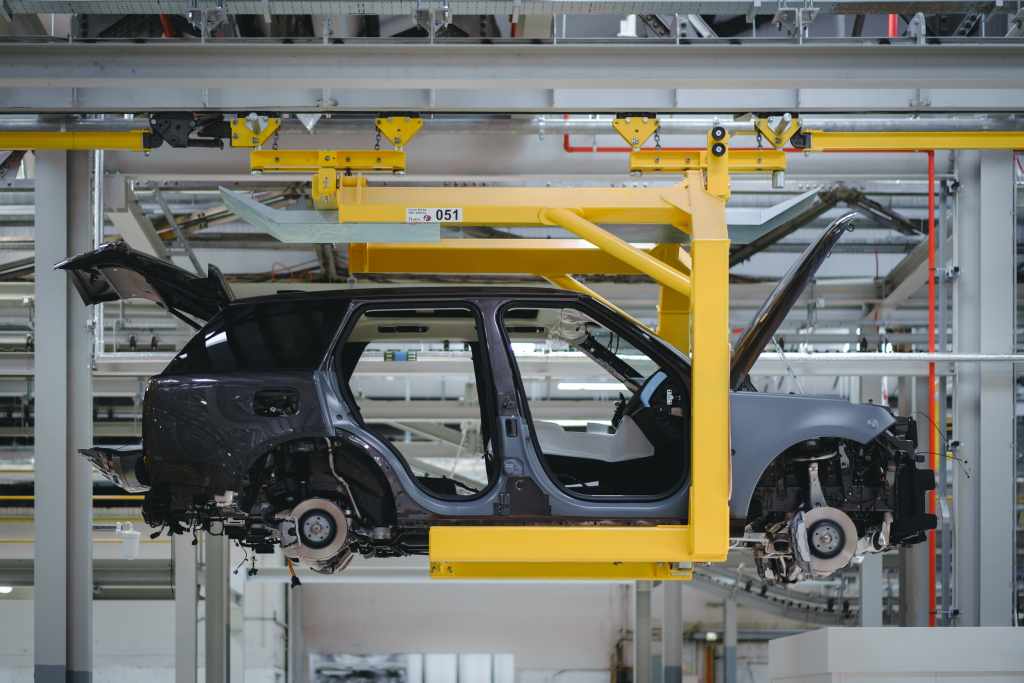Jaguar Land Rover will make its Halewood plant an all-electric production facility as part of a £15bn investment over five years in JLR’s industrial footprint, vehicle programmes, autonomous, AI and digital technologies. The company is set to be carbon net-zero across its supply chain, products, and operations by 2039 with electrification central to this strategy.
In an update to global media at JLR’s centre in Gaydon, CEO Adrian Mardell reaffirmed the business’s commitment to its Reimagine strategy, which will reposition the company as an electric-first, modern luxury carmaker by 2030. Before the end of the decade the Range Rover, Discovery, Defender collections will each have a pure electric model, while Jaguar will be entirely electric.
A Range Rover will be available for pre-order in pure electric form later this year, and JLR also announced that the first of three luxury Jaguars will be a 4-door GT built in Solihull in the West Midlands, UK. With power output more than any previous Jaguar, a range up to 430 miles, the new Jaguar will be built on its own unique architecture, named JEA.
In addition to the news that its Halewood plant in Merseyside, JLR also revealed its Engine Manufacturing Centre in Wolverhampton, UK, currently producing Ingenium internal combustion engines for its vehicles, will have an electric future producing electric drive units and battery packs for JLR’s next generation vehicles. It will be renamed the Electric Propulsion Manufacturing Centre to reflect the move.
In positive news for the future of the historic Castle Bromwich site, JLR confirmed that its stamping facilities that prepare pressed body metalwork for JLR’s vehicles will be expanded to play a key role in the company’s electric future, by providing body work for next generation electric vehicles.
Latest News
-
Jewellers body offers grants of up to £50,000 to boost training
-
Agency overhauls community charity’s brand for free
-
Open University launches global majority voluntary sector leadership programme
-
OVO and Co-op’s foundations help launch youth climate justice funding scheme
-
Bus firm to invest £25m in green transport research
-
Myanmar earthquake: Co-operative bank launches emergency fundraising appeal
© 2019 Perspective Publishing Privacy & Cookies



.jpg)





Recent Stories